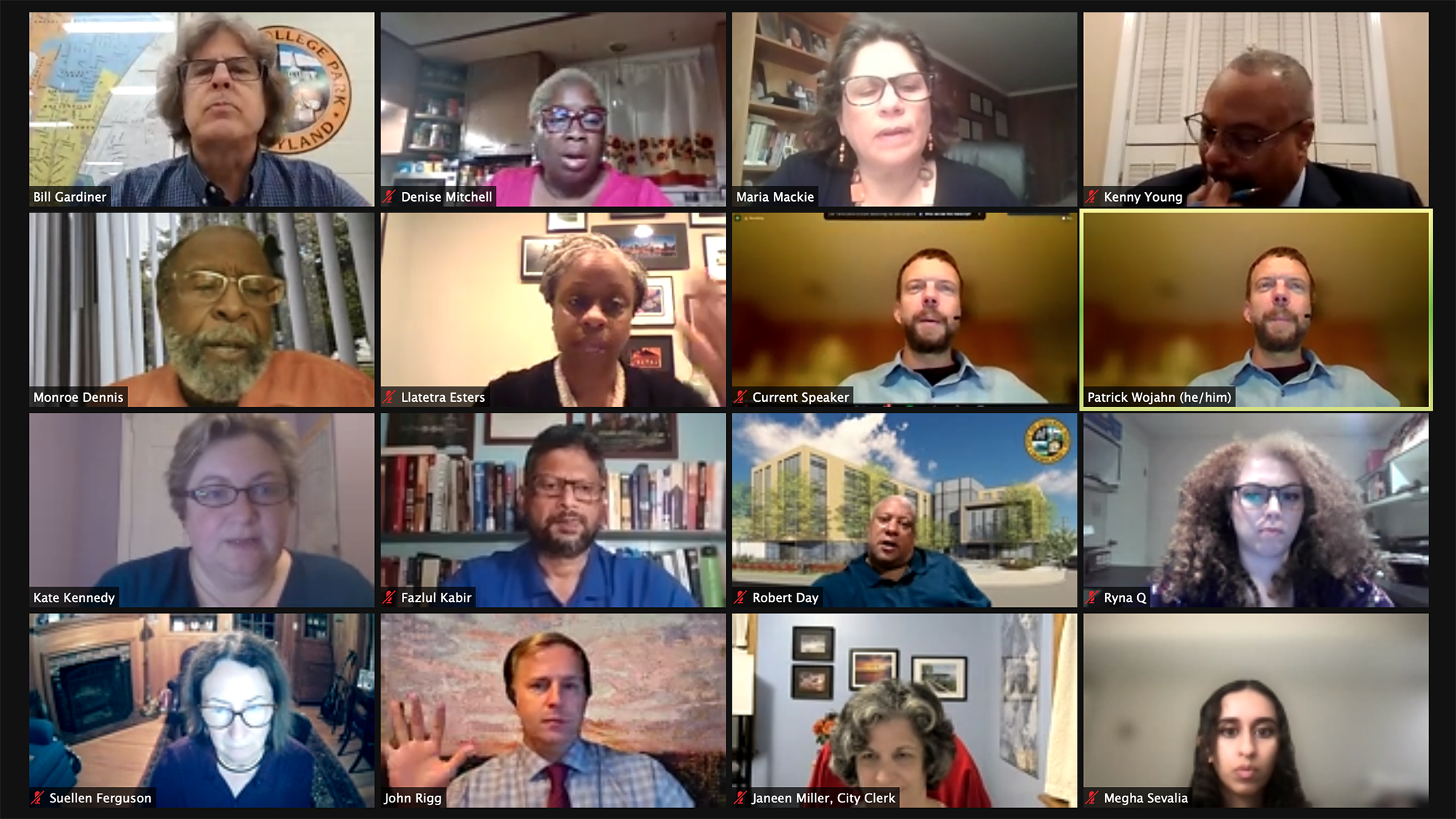This story is part of The Diamondback’s 2021 Housing Guide. Click here for the rest.
The College Park City Council explored policy options to address housing affordability and the decrease in owner-occupied housing during its Tuesday work session.
Council members discussed the possibility of ramping up enforcement of a Prince George’s County zoning ordinance that caps the number of unrelated individuals living in a house at five. The council also discussed rent-stabilization policies and stricter enforcement of the unruly social gathering ordinance.
Both neighborhood stabilization, which aims to preserve the amount of owner-occupied single-family houses in College Park, and housing affordability are integrated issues that need to be understood in a local context, according to city planning director Terry Schum.
“It’s hard to talk about neighborhood stabilization without getting into the area of affordable housing,” Schum said.
Prince George’s County, unlike Montgomery and Howard counties, does not have inclusionary zoning laws, which would require developers to set aside units in apartment buildings to be below-market rate. This can force students seeking more affordable options in neighborhoods such as Lakeland and Old Town and incentivize investors to buy up houses to rent to students. These investors sometimes out-bid families looking to settle in College Park, said city manager Bill Gardiner.
[Students have decried College Park housing costs. New apartments could worsen the issue.]
“Students are flocking to those because it’s cheaper than the big apartment complexes,” said District 1 council member Kate Kennedy.
While legally only five renters can occupy a home at a time, some exceed that rate even if it’s not on paper, public services director Bob Ryan explained.
“Some of the tenants seem to be well informed,” Ryan said. “Most are rehearsed to say that there are five people on the lease, and in fact very often there are only five people on the lease.”
District 2 council member Llatetra Brown Esters suggested the city work to expand inspections of houses that might be in violation and use neighbors and “telltale signs”— such as houses that advertise more than five available beds — to help enforce policies.
The increase in student occupation of houses causes problems for longer-term residents, some council members said. Mayor Patrick Wojahn pointed out that parties and public drunkenness can detract from the quiet enjoyment of a neighborhood and general welfare longer-term residents are seeking.
Wojahn believed further enforcement of the unruly social gathering ordinance would help to discourage landlords from buying property to sell to students.
“The reason why I’m pushing on the unruly social gathering ordinance is because of the ability to potentially revoke the occupancy permit for repeat offenders,” Wojahn said. “Unless we enforce that ordinance, that threat … to a landlord isn’t going to be real.”
[Priced Out of Town: A look at housing costs in the College Park area]
At the same time, students face problems when turning to apartment complexes closer to campus, which can cost over $1,000 per month in rent. Cracking down on ordinance enforcement may jeopardize the ability of some students to access affordable living, said Megha Sevalia, a Student Government Association liaison to the council.
“A lot of students are willing to break the occupancy limit and live in these houses, way above five unrelated members, because it’s their only affordable option,” Sevalia said.
And investors looking to buy houses to rent out are becoming more commonplace. Several formerly owner-occupied houses — some of them owned for multiple decades, according to Kennedy — have been converted into rental properties across the city, District 3 council member John Rigg said.
“I know from representing District 3 for a number of years that we’ve seen whole streets sort of convert,” Rigg said.
Rigg also brought up the possibility of implementing a rent control policy, which has been tested in cities such as New York. This would ensure the availability of some affordable housing and could deter students from resorting to renting homes. College Park is allowed to have a rent stabilization law, according to city attorney Suellen Ferguson.
But District 3 council member Robert Day believed it would be very difficult for prices to decrease.
“That number of beds that gets built is never going to be enough,” Day said. “It’s going to be really hard to outrun the demand to cause it to change the value or the cost of housing in College Park.”
The problems of increasing rent and decreasing owner-occupied housing will continue to persist unless the council acts soon, Rigg argued. He pointed out that in Old Town, only a handful of owner-occupied houses remain.
“There’s also I think a strong case to be made for action, because we’re losing our neighborhoods,” Rigg said. “Once these communities are gone, they’re gone.”
This story has been updated.



